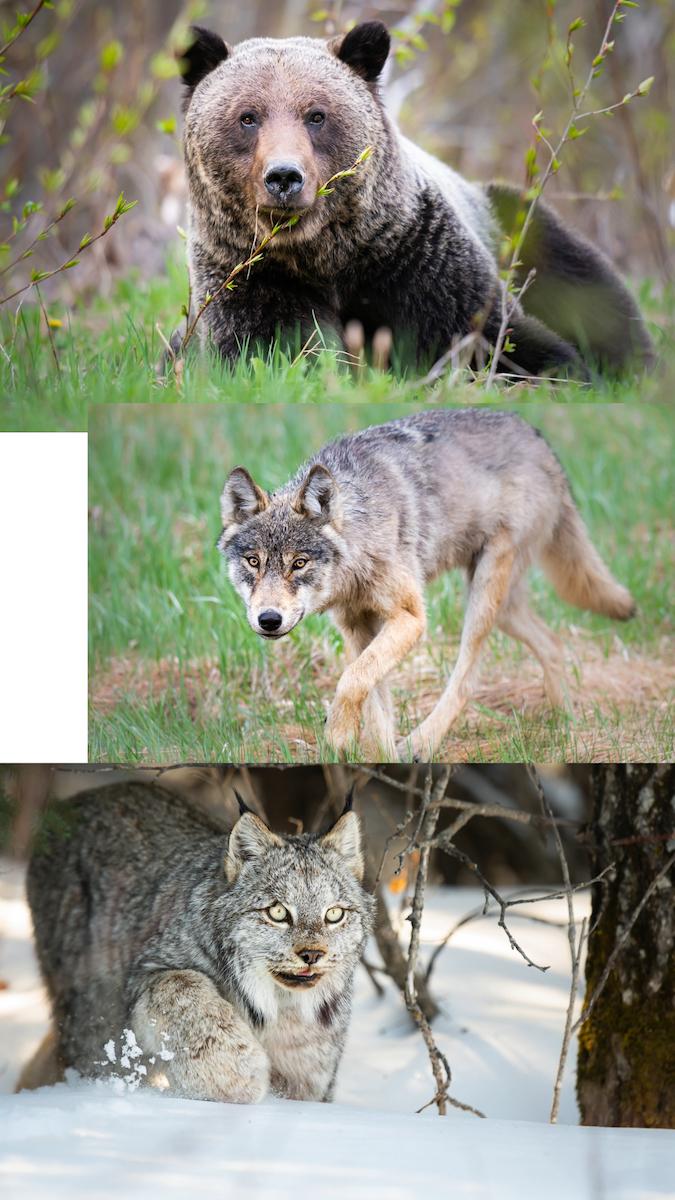Divisiveness and extremism isn’t limited to elections, it’s also impacting biodiversity goals and initiatives. The Guardian – a centre-left, if reliable, British newspaper – released a story examining the connection between science-driven efforts to ‘re-wild’ Europe and the rise of extreme-right populist movements. It’s a fascinating read, but here’s the gist:

Science determined that biodiversity was collapsing in Europe and that a big reason for the decline was the absence of large carnivores (grizzly or European brown bears, wolves and lynx) that regulate and drive ecosystem services. The reintroduction of predators, thus the thinking went, would have far-reaching consequences, including to help restore biodiversity, mitigate climate change and aid economies suffering from the loss of nature. Well-intended policy-makers in the European Union took the science to heart and started reintroducing carnivores.
Rapidly.
Too rapidly? Well, that’s the question. And, at the very least, policy-makers did an appalling job of explaining the plan or acquiring social license from those who must live with their new carnivorous neighbours. The consequence has been anger, and lots of it.
Historical literature and myth has combined with real-life dangerous encounters leading to yet another flash point for citizens who are already struggling economically, in part due to biodiversity loss. And even though reintroducing predators has yielded good news in early scientific studies, it’s done bleep all to help those struggling to get by in the here and now (environmental impact on the economy, good or bad, is always a long-term issue…until it isn’t).
According to the Guardian’s reporting, extremist movements are using the promise of predator control to capitalize on the anger and grow their movements for other more nationalistic, anti-democratic goals. Moreover, populist parties already in power – and other parties hoping to keep them at bay – are pushing forward with plans to kill the reintroduced carnivores at a scale not seen since the late 1800s. And what does that mean? Well, it’s all about short term gain, as this scale of predator control potentially doubles down on the biodiversity loss policy-makers sought to curb with reintroducing carnivores in the first place, further destabilizing the economy, which is at the heart of citizen anger. An irony? A paradox? Both?!
This is a story worth keeping an eye on, as there are some very Canadian parallels – or there could be (in chapter nine, former prime minister Kim Campbell warns about the impacts of scape-goating, as is happening with predators in Europe).
Also! If you’re a future scientist or researcher with an important finding that you think needs to be implemented? Maybe consider this as a warning: forget the human or economic consequences of your result at your peril.
Also this! If you’re a future policy-maker? Pay attention to those communication courses, like art and language arts. After all, the lesson here is: if you can’t sell your idea well, it’s doomed to failure, no matter how well-intentioned.
Sorry for the long update to start your week, but it’s a big week. And to understand all of this – to understand your world? It all starts with understanding this class.